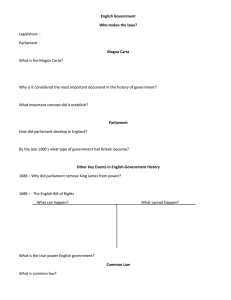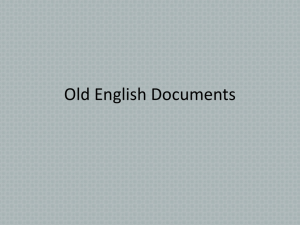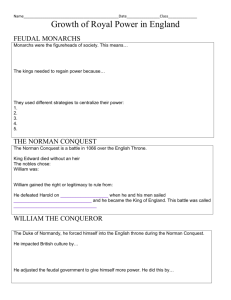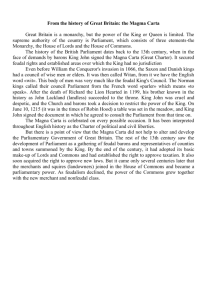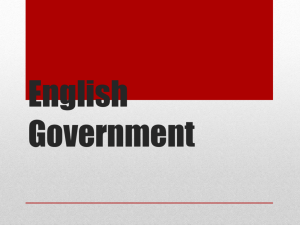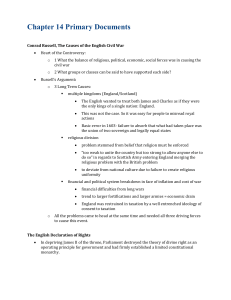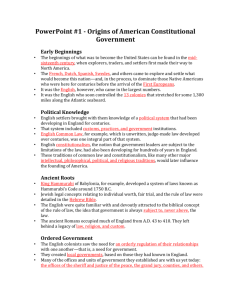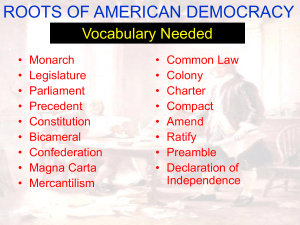Plato and Aristotle in Modern Times
advertisement
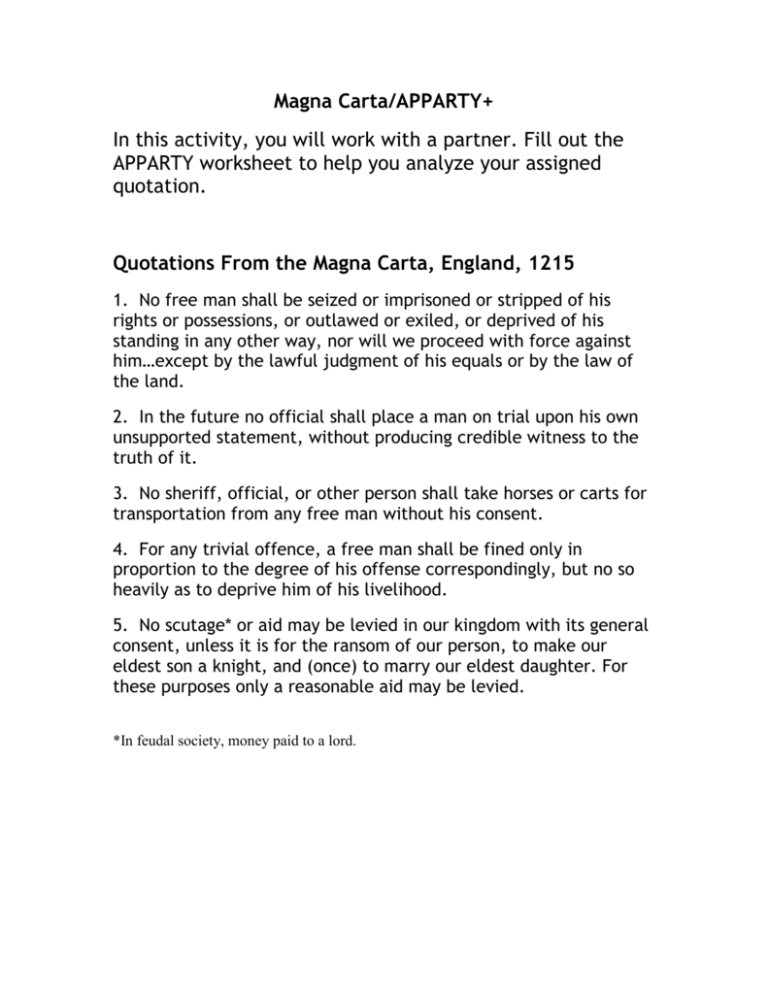
Magna Carta/APPARTY+ In this activity, you will work with a partner. Fill out the APPARTY worksheet to help you analyze your assigned quotation. Quotations From the Magna Carta, England, 1215 1. No free man shall be seized or imprisoned or stripped of his rights or possessions, or outlawed or exiled, or deprived of his standing in any other way, nor will we proceed with force against him…except by the lawful judgment of his equals or by the law of the land. 2. In the future no official shall place a man on trial upon his own unsupported statement, without producing credible witness to the truth of it. 3. No sheriff, official, or other person shall take horses or carts for transportation from any free man without his consent. 4. For any trivial offence, a free man shall be fined only in proportion to the degree of his offense correspondingly, but no so heavily as to deprive him of his livelihood. 5. No scutage* or aid may be levied in our kingdom with its general consent, unless it is for the ransom of our person, to make our eldest son a knight, and (once) to marry our eldest daughter. For these purposes only a reasonable aid may be levied. *In feudal society, money paid to a lord. English Bill of Rights/APPARTY+ Repeating the activity with a different document, you will again work with a partner. Fill out the APPARTY worksheet to help you analyze your assigned quotation. Quotations From the English Bill of Rights, England, 1688 1. That levying money for or to the use of the Crown by pretence of prerogative, without grant of Parliament, for longer time, or in other manner than the same is or shall be granted, is illegal; 2. That the raising or keeping a standing army within the kingdom in time of peace, unless it be with consent of Parliament, is against law; 3. That the freedom of speech and debates or proceedings in Parliament ought not to be impeached or questioned in any court or place out of Parliament; 4. That excessive bail ought not to be required, nor excessive fines imposed, nor cruel and unusual punishments inflicted; 5. That jurors ought to be duly impaneled and returned, and jurors which pass upon men in trials for high treason ought to be freeholders;
